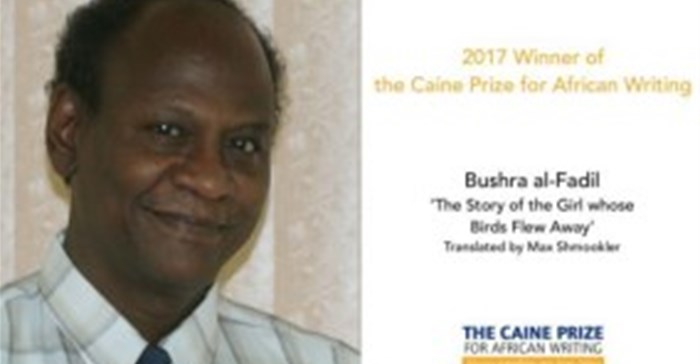
Top stories


Energy & MiningTotalEnergies-led Mozambique LNG project loses R2.2bn backing
Shadia Nasralla and America Hernandez 3 days

FinanceA practical guide to building a better credit score in South Africa - Finance365
Finance365 1 day



The chair of judges, Nii Ayikwei Parkes, announced Bushra al-Fadil as the winner of the £10,000 prize at an award dinner on Monday, held for the first time in Senate House, London, in partnership with SOAS as part of their centenary celebrations. As a translated story, the prize money will be split – with £7,000 going to Bushra and £3,000 to the translator, Max Shmookler.
The Story of the Girl Whose Birds Flew Away vividly describes life in a bustling market through the eyes of the narrator, who becomes entranced by a beautiful woman he sees there one day. After a series of brief encounters, tragedy unexpectedly befalls the woman and her young female companion.
Nii Ayikwei Parkes praised the story, saying, “The winning story is one that explores through metaphor and an altered, inventive mode of perception - including, for the first time in the Caine Prize, illustration - the allure of, and relentless threats to freedom. Rooted in a mix of classical traditions as well as the vernacular contexts of its location, Bushra al-Fadil's The Story of the Girl Whose Birds Flew Away, is at once a very modern exploration of how assaulted from all sides and unsupported by those we would turn to for solace we can became mentally exiled in our own lands, edging in to a fantasy existence where we seek to cling to a sort of freedom until ultimately we slip into physical exile.”
Bushra al-Fadil is a Sudanese writer living in Saudi Arabia. His most recent collection Above a City's Sky was published in 2012, the same year Bushra won the al-Tayeb Salih Short Story Award. Bushra holds a PhD in Russian language and literature.
Last year the Caine Prize was won by South African writer Lidudumalingani for his story Memories We Lost from Incredible Journey: Stories That Move You. Lidudumalingani has since gone on to win a Miles Morland Scholarship and is currently writing his debut novel, Let Your Children Name Themselves.
The Caine Prize, awarded annually for African creative writing, is named after the late Sir Michael Caine, former chairman of Booker and chairman of the Booker Prize management committee for nearly 25 years. The Prize is awarded for a short story by an African writer published in English (indicative length 3,000 to 10,000 words).